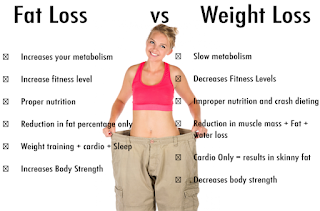The Truth About 1,200 Calorie Diets for Weight Los
Eat more quality food, not less.
"Eat more quality food, not less" is a key message in the podcast transcript. The host, Coach Clarence, discusses the common misconception that eating only 1,200 calories is necessary for weight loss. He explains that this theory originated in the early 1900s but is not sustainable or suitable for everyone.
Coach Clarence emphasizes that there is no one-size-fits-all diet and that super low-calorie diets can lead to struggles with hunger, cravings, and imbalanced hormones. He also highlights the ease of overeating on a 1,200-calorie diet if individuals are not tracking their macros or aware of portion sizes.
To illustrate this point, Coach Clarence provides examples of high-calorie meals that can easily exceed 1,200 calories, such as a whole pizza with two beers or a gourmet burger with fries and cola. He emphasizes that it is crucial to focus on the quality of food rather than restricting calories.
According to Coach Clarence, some individuals who may benefit from a 1,200-calorie diet include very small women in stature, advanced nutritionists, athletes, and bariatric patients who need to lose weight rapidly for health reasons. However, for the average person, he recommends a better approach to fat loss.
The host suggests gradually increasing calorie intake while focusing on consuming more quality food. He advises breaking meals down into smaller portions and including lean protein at every meal. Protein takes longer to digest than carbohydrates or fats, helping to increase satiety and support weight loss.
Overall, the podcast promotes the idea that eating more quality food, rather than restricting calories, is a more sustainable and effective approach to achieving and maintaining a healthy weight. By prioritizing nutrient-dense meals and gradually increasing calorie intake, individuals can improve their overall health and well-being.
Increase protein and vegetable intake.
One of the main points emphasized in the podcast is the importance of increasing protein intake. The host explains that protein stimulates the release of hunger and appetizing suppressant hormones, while also reducing levels of the hunger hormone. This means that consuming enough protein is crucial in keeping hunger and appetite satisfied. The podcast refers to the protein leverage hypothesis, which suggests that the body will continue to feel hungry until its basic protein needs are met. Therefore, individuals who consume a lot of carbohydrates without sufficient protein may find themselves constantly hungry.
To address this issue, the podcast recommends incorporating various sources of protein into one's diet. These sources include fish, shellfish, chicken, turkey, beef, eggs, egg whites, cultured cottage cheese, Greek yogurt, tofu, tempeh, seitan, and different protein powders. The host suggests including one or two palm-sized portions of protein in every meal. By increasing protein intake, individuals may start to see positive changes in their weight.
Another important aspect discussed in the podcast is the importance of non-starchy vegetables in promoting weight loss. The host explains that non-starchy vegetables are low in calories but high in fiber and water content. This means that they provide a sense of fullness without significantly increasing caloric intake. The podcast highlights the benefits of incorporating non-starchy vegetables into one's diet, as they offer volume and satiety while being low in calories. Additionally, research has shown that each additional serving of vegetables or fruits is associated with weight loss.
To increase vegetable intake, the podcast suggests gradually increasing the daily target over time. The host recommends aiming for at least four fist-sized servings of non-starchy vegetables per day. This visual representation of portion size makes it easier for individuals to incorporate vegetables into their meals. The podcast also mentions that salads are an easy way to add vegetables to one's diet, but cautions against using excessive amounts of dressing.
In addition to increasing protein and vegetable intake, the podcast emphasizes the importance of gravitating towards minimally processed whole foods. Many people tend to consume processed junk food that is high in calories but lacks nutritional value. The podcast advises individuals to opt for foods with fewer than 10 ingredients and to avoid products that are enriched or heavily processed. These highly processed foods are often unsatisfying and loaded with additives to enhance flavor. By making swaps in their pantry and refrigerator, individuals can replace pre-packaged, weight-loss-marketed foods with healthier alternatives.
Overall, the podcast advocates for increasing protein and vegetable intake as a means of achieving and maintaining a healthy weight. By prioritizing nutrient-dense meals and gradually increasing calorie intake, individuals can improve their overall health and well-being. The podcast emphasizes the importance of incorporating a variety of protein sources and non-starchy vegetables into one's diet, while also avoiding highly processed foods. By following these recommendations, individuals can make sustainable changes to their eating habits and achieve their weight loss goals.
Improve health with diet and exercise.
The podcast begins by discussing the importance of avoiding highly processed foods. The speaker emphasizes that these foods often contain additives and preservatives that are not beneficial for the body. Instead, the speaker suggests that food should naturally decompose on its own, indicating that fresh and whole foods are preferable.
Next, the podcast highlights the importance of resistance training in addition to cardiovascular exercise. The speaker notes that while activities like walking or using the treadmill are beneficial for the heart and mitochondria system, they do not provide the same benefits as resistance training. The speaker explains that resistance training helps to build muscle, which in turn increases the body's calorie requirements. By incorporating resistance training into their exercise routine, individuals can support muscle growth and potentially experience weight loss.
The podcast also mentions the role of calorie intake in weight loss. The speaker explains that when individuals engage in strength training, their body may experience an increase in hunger hormones. This is because the body is trying to support the muscle growth resulting from the exercise. However, by feeding oneself properly and providing the necessary nutrients, individuals can achieve weight loss while still enjoying a balanced diet. The speaker emphasizes that it is not necessary to engage in hours of cardio exercise to be healthy and that sustainable weight loss can be achieved through a combination of resistance training and proper nutrition.
To improve health and achieve weight loss, the podcast provides four key recommendations. Firstly, it suggests incorporating lean protein into every meal. This can be achieved through sources such as chicken, fish, eggs, and lean cuts of meat. Secondly, the podcast advises increasing the intake of non-starchy vegetables. These provide fiber and help to keep individuals feeling full. The podcast also emphasizes the importance of avoiding processed foods and instead preparing meals at home using fresh ingredients. Lastly, the podcast encourages individuals to engage in resistance training to build muscle and increase their calorie requirements.
Overall, the podcast promotes the idea that improving health and achieving weight loss is possible through a combination of proper nutrition and exercise. By prioritizing nutrient-dense meals and gradually increasing calorie intake, individuals can make sustainable changes to their eating habits and achieve their weight loss goals. The podcast highlights the benefits of incorporating lean protein and non-starchy vegetables into one's diet, while also avoiding highly processed foods. Additionally, the podcast emphasizes the importance of resistance training in supporting muscle growth and increasing calorie requirements. By following these recommendations, individuals can improve their overall health and well-being.
Pay attention to your data.
Furthermore, the podcast emphasizes the importance of paying attention to one's data in order to achieve success in their health and fitness journey. The host emphasizes that all diets are simply a manipulation of calories and macronutrients, and what works for one person may not work for another. Therefore, it is crucial for individuals to document their progress and track their habits in order to determine what is effective for them.
The podcast suggests various methods of tracking progress, such as taking pictures, weighing oneself daily, and keeping a food journal. By doing so, individuals can gain a better understanding of their eating habits, how certain foods make them feel, and whether they are making progress toward their goals. The host emphasizes that data is how one wins in their health and fitness journey, and that coaching should be data-driven rather than based on guesswork.
The podcast also emphasizes the importance of setting realistic goals and timelines. The host acknowledges that some individuals may have specific events or deadlines, such as a wedding in six weeks, where they want to look their best. In these cases, the host suggests that a more drastic approach may be necessary. However, for those with longer timelines, the focus is on building sustainable habits over time.
In addition to tracking progress and setting realistic goals, the podcast highlights the importance of nutrition outside of the gym. The host emphasizes that abs are built in the kitchen and that proper nutrition is key to achieving the best results. The podcast encourages individuals to eat the right foods to support their athletic endeavors and to prioritize nutrient-dense meals over supplements and quick fixes.
Overall, the podcast emphasizes the importance of paying attention to one's data in order to achieve success in their health and fitness journey. By tracking progress, setting realistic goals, and prioritizing proper nutrition, individuals can make sustainable changes and improve their overall health and well-being. The podcast encourages individuals to seek guidance and support from coaches or professionals who can help them navigate their journey and make informed decisions based on their specific data.



Comments
Post a Comment